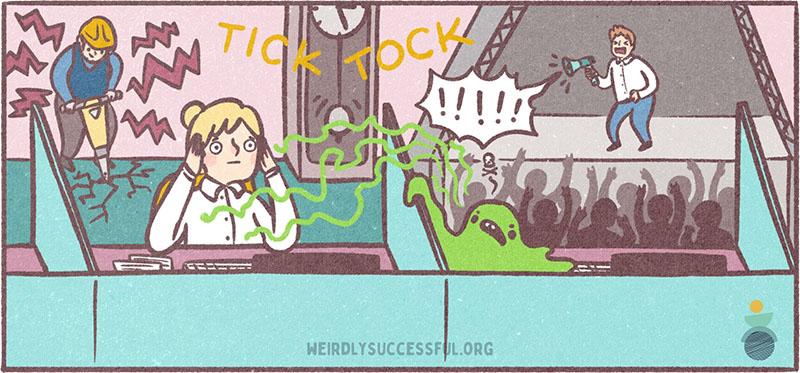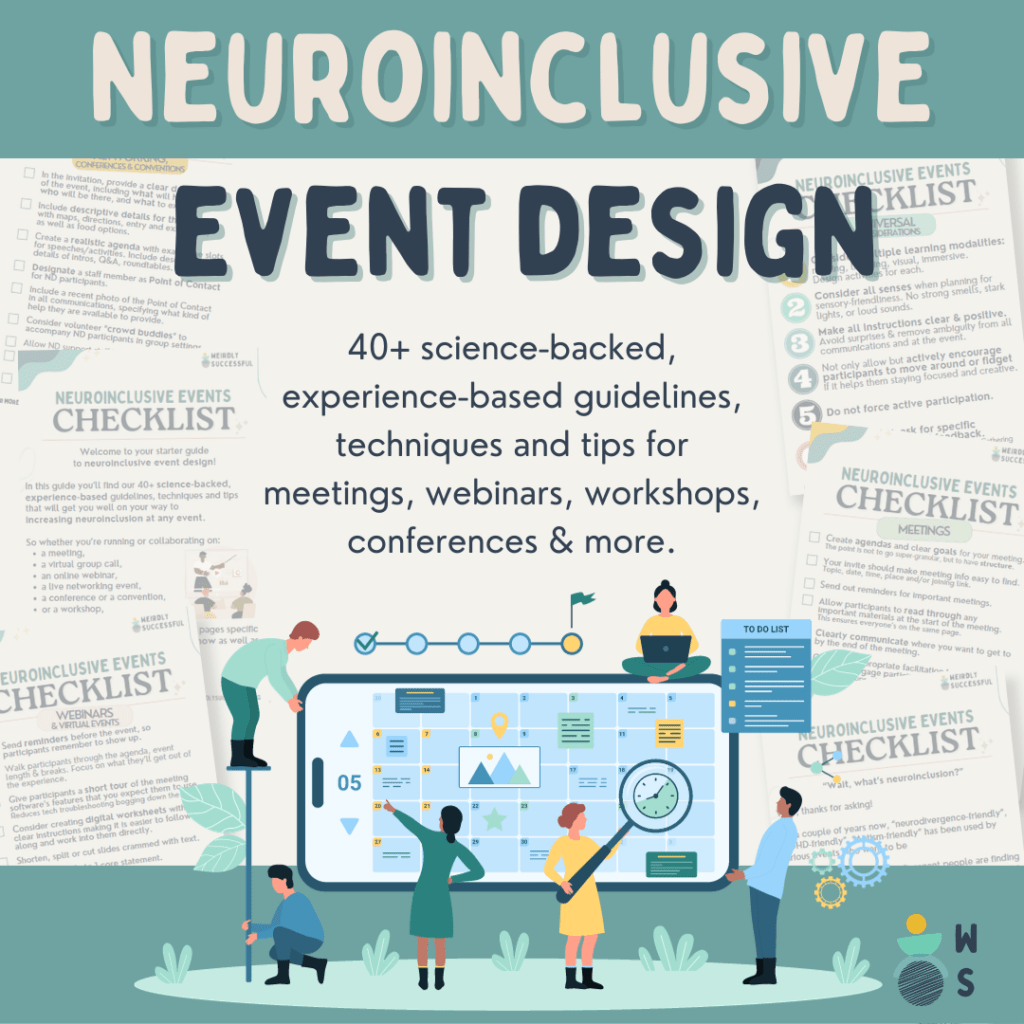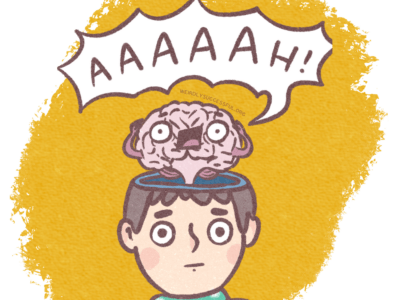What is habituation?
Habituation is a biological term for a basic, universal form of learning: when stimuli keep repeating or are present at all times, biological organisms innately respond by decreasing their reaction to that stimulus.
More plainly put: “If that sight, sound, or thing is just there and it’s not dangerous to me, I can tune it out after a while.“
In neurodivergence, ‘habituation’ seems to work differently
Repeated or ongoing stimuli, like the low hum of a fridge
- will be acknowledged and gradually tuned out by a neurotypical brain
- and cannot be tuned out and will keep causing compounding stress for a neurodivergent brain.
Sensory difficulties and overwhelm are likely linked to reduced habituation in autistic people. 1
The compounding effect of stimuli
“Right. There’s a hum coming from the fridge, the clock’s ticking on the wall, Dave is on a call and he brought a fish sandwich. The call is a bit distracting, but let’s get to work.”
For a person with sensory sensitivities, this entire scene looks exactly the same.

But what it feels like is this…

Each tick of the clock is like a drip of water on your head. The fish sandwich smells like it’s been there for three days. The hum of the fridge is like roadworks. And Dave sounds like he’s live from the Pyramid Stage at Glasto.
Worst off, the brain doesn’t go “this is all fine”. You can’t tune it out, can’t turn it off.
The more sensory inputs, the quicker it all stacks up. This leads to irritability, fatigue and acute distress.
No wonder sensory overwhelm is a long-term contributor to burnout.
The compound effect of higher stress levels
- Levels of the stress hormone cortisol can remain consistently high in neurodivergence and can take a much longer time to return to normal after each spike.
- Potential issues with interoception can mean weaker signals of hunger and thirst, which can lead to low food and liquid intake.
- Sleep difficulties are very common in neurodivergence, including primary and secondary insomnia, delayed sleep phases, low-quality sleep, and difficulty waking up.
All these make stress management more difficult and raise the chances of burnout. Keep adding the constant sensory and mental stimuli, and it can result in sensory overwhelm.
This means that preventing sensory overwhelm has to include creating an inclusive, neuroaffirming environment and offering adaptation options for people, like noise-cancelling headphones and quiet booths, information clarity, carefully considered lighting setups and office layouts, and more.
Related terms
sensory overwhelm
A feeling of immense distress, a sensory overwhelm / autistic overwhelm is a strong reaction caused by the compounded effects of stress, exhaustion, lack of safety, a sense of danger, unmet needs, too much information, noise, sights or sounds, smells or touch.
neuroaffirming
Neuroaffirming or neuro-affirmative refers to practices, approaches, or environments that recognize and affirm the neurodiversity of society and the neurodivergence of individuals.
autistic burnout
Autistic burnout refers to a state of physical, mental, and emotional exhaustion experienced by autistic people. It is a result of prolonged exposure to overwhelming sensory, social, and cognitive demands, often in an environment that does not accommodate their needs.
context switching
Context switching refers to the cognitive process of shifting attention between different tasks or mental states. It involves disengaging from one task and engaging in another, requiring the brain to change its focus, rules, and objectives.
This process can be mentally taxing due to the cognitive load involved in stopping one task and starting another, shifting gears to focus on the new task, and getting accustomed to the new situation with all its stimuli. Frequent context switching and jumping from task to task can lead to a decrease in productivity and efficiency.
transitions
Transitioning, in the context of neurodiversity, refers to the process of moving from one state, activity, or place to another. It involves a shift in attention, focus, and cognitive resources.
For neurodivergent individuals, it may require additional time, support, and strategies to manage effectively.
Transitioning can encompass a wide range of changes, from minor daily shifts like moving from one task to another, to major life changes such as transitioning from school to work or from living at home to independent living.
neurodivergent adaptations
Adaptations or coping mechanisms are adjustments you make for yourself or made for you to create a safe and comfortable environment for you to exist in.
Learn more about neuroinclusive event design
Grab our Neuroinclusive Events Checklist – a handy and hyper-condensed guide full of zero- to low-cost tips and techniques for webinars, meetings, networking events and workshops.
Download now from The Library, our free resource hub.






